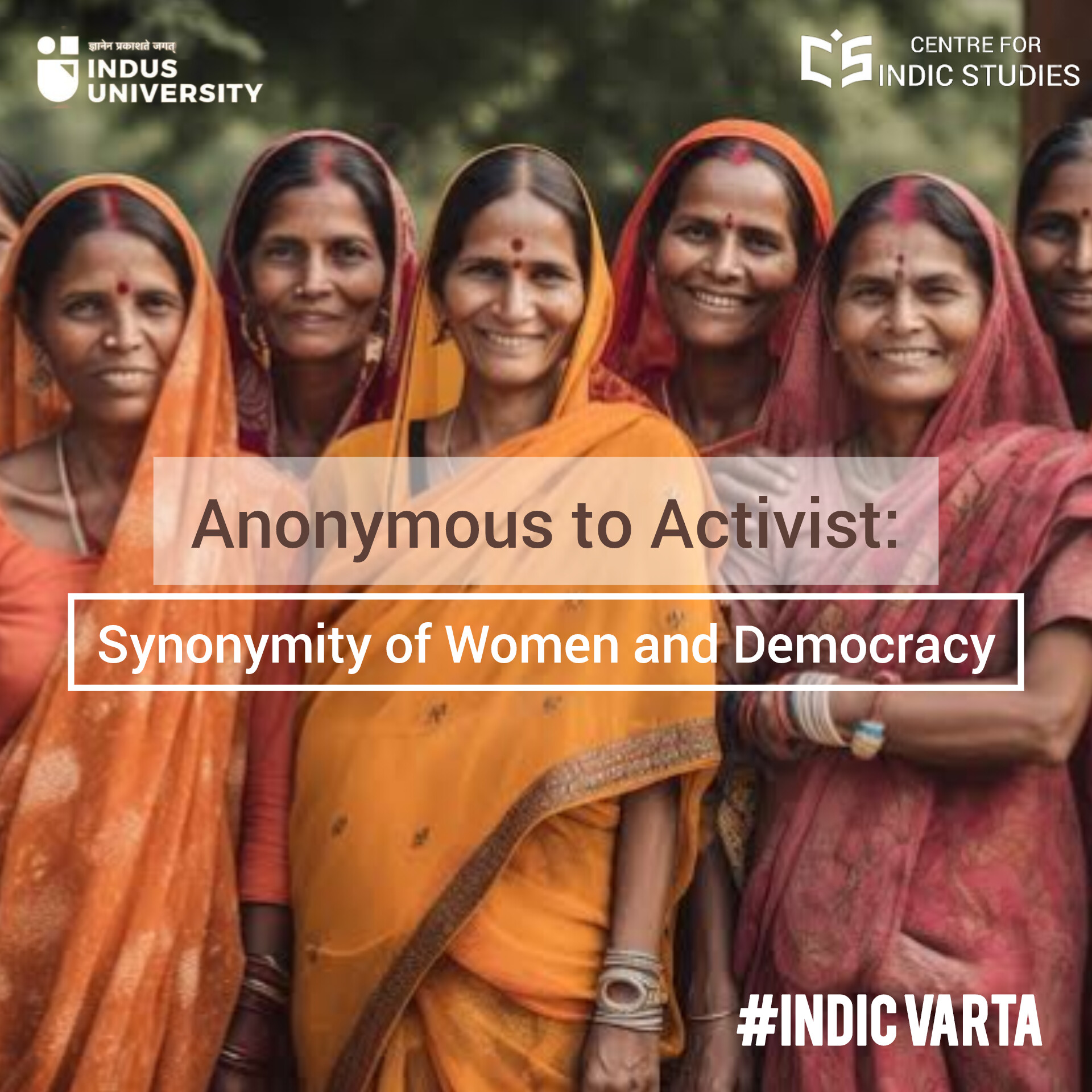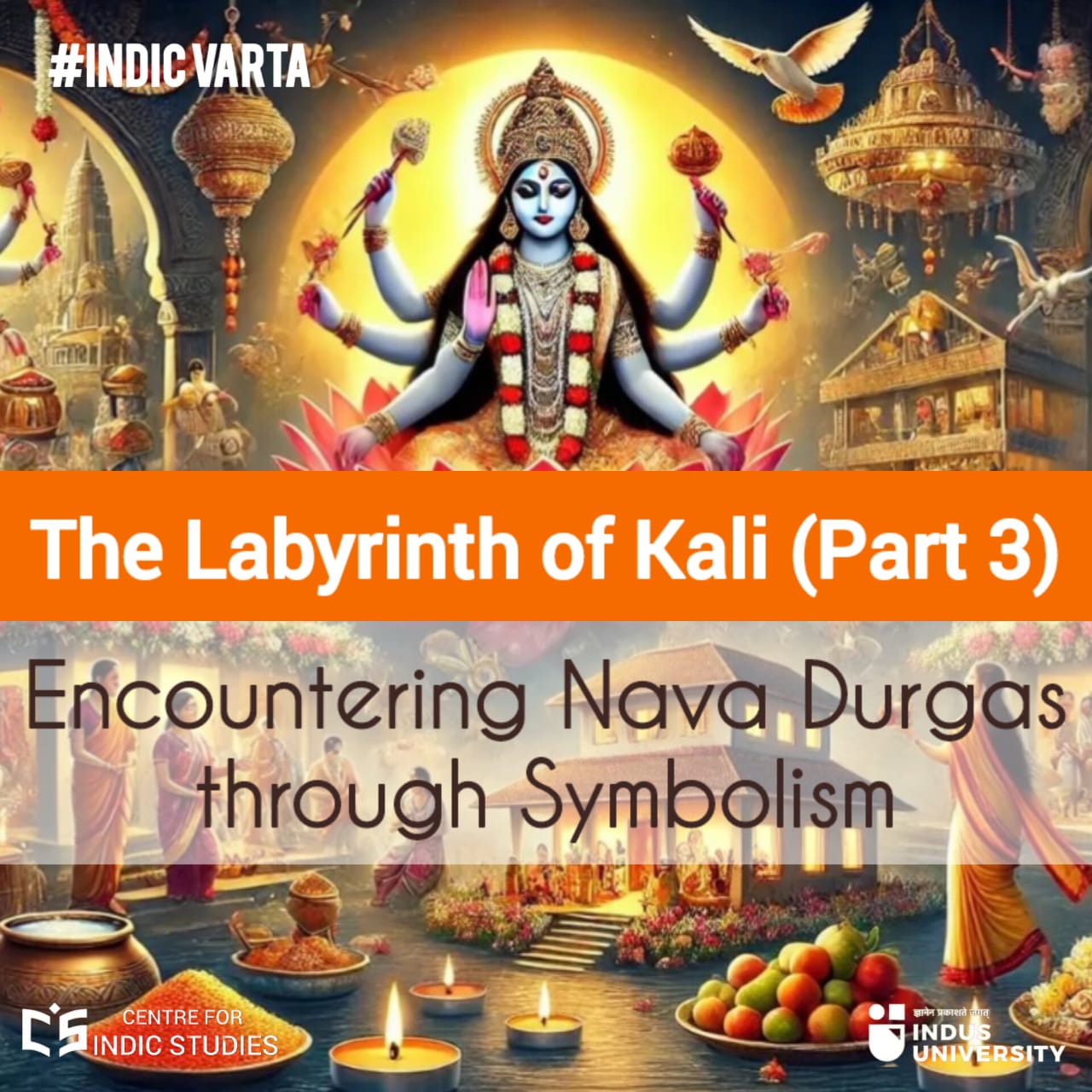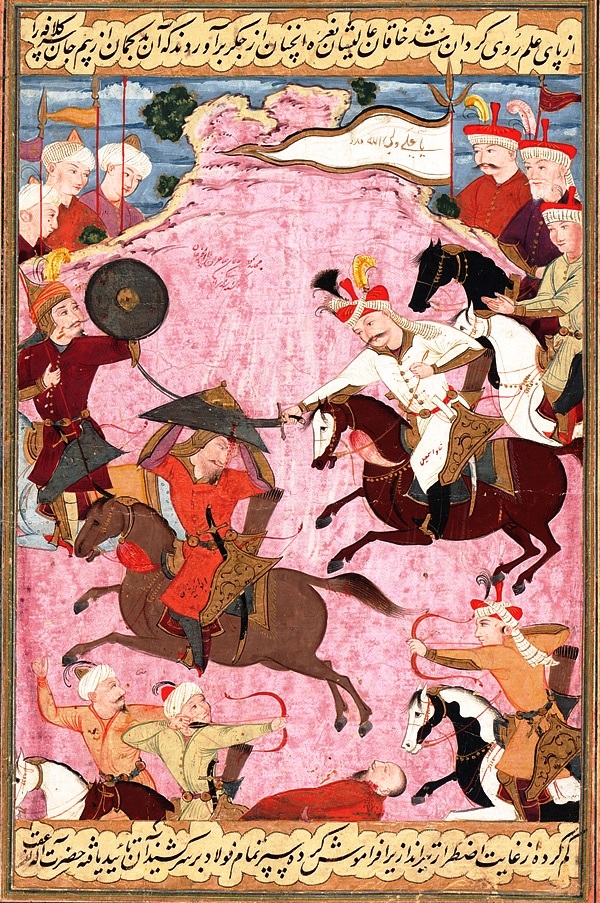- Visitor:50
- Published on: 2024-10-21 01:28 pm
Anonymous to Activist: Synonymity of Women and Democracy
It has seldom happened that the party that wins in Uttar Pradesh doesn’t win overall, and it seldom happens that a government is not overturned with women majorly forming the electorate. Such a solid hold on one’s vote bank is a case study waiting to happen.

Famous historian and feminist litterateur, Virginia Woolf, once said, "For most of history, anonymous was a woman"––referring to the dreadful state of records of women in the history of time. While Indian history has been relatively very recognising the pivotal role of women in our history, it has seen a decline in celebration of women’s role in shaping events since independence whether it be the role of Madame Bhikaji Cama in the freedom struggle or the torturous sacrifice of Neera Arya. All that fight has moulded into the democratic country now witnessing the most aggressive regard to economic development. Women’s role even as housewives who become the center of family budgeting, household savings, and investment in gold have formed the backbone of India’s economy despite the unwelcoming incorporated sectors that disallow an easy influx of women in the workforce. While this establishes women’s importance in the economy, they have gained much stride in politics as well.
The National Family Health Survey (NFHS) has estimated the sex ratio in India to have increased to 1020 females per 1000 males, the implications of this are significant in politics and if laymen like us have noticed this dataset, it is no wonder that the political intelligentsia has already begun exploring this new vote bank. While calling women to be a separate vote bank, the article presumes that they may vote as a bloc instead of individuals hailing from varied religions and ideologies which doesn’t have any significant evidence. However, there is ample evidence from times new and old of the nature of an election when women form the majority of the electorate. In Phase 6 of the 2024 Lok Sabha elections, women's voter turnout (64.95%) surpassed men (61.95%) in 34 constituencies, notably in Uttar Pradesh and Bihar. West Bengal had the highest women turnout at 83.33%. Only Haryana, Delhi, and Jammu and Kashmir saw higher men turnout.
A similar instance occurred in 2005 Bihar elections, where women formed the majority and overturned the RJD government and brought the JDU-BJP Alliance to power. This was noticed by the new government and hence they brought about several women-centric policies like widow empowerment and bicycle schemes etc. With the rise of this number, the contesting political parties have started formulating their manifestos to cater to the women population. In the case of the recent Karnataka state elections, while the manifesto swayed the masses with its promise of freebies, out of the 5 guarantees by the Siddaramiah-led government, 3 of them directly benefited women. The Lok Sabha’s unanimous decision to finally pass the 33% women’s reservation in the Parliament in 2029 with only two nays (AIMIM leaders Asaduddin Owaisi and Imtiaz Jaleel), or the women-centric campaigning in Madhya Pradesh, Rajasthan, and Chhattisgarh led by BJP ensuing their victory ‘wave’. These examples indicate the indispensability of women as voters; therefore, the parties have begun the swooning tactic aimed at them.
Another political role a citizen can play is that of contesting the elections, here the observations made by Mudit Kapoor and Shamika Ravi in their paper, “Women Voters in Indian Democracy – A Silent Revolution” come in handy to understand the trends. They observed in this study done in 2014, that socially ‘backward’ states like UP and Bihar had more women contesting elections even though they had a lesser chance of winning due to the electorate having a male majority whereas socially ‘advanced’ states like Tamil Nadu and Kerala didn’t have women contesting in high numbers despite forming a majority in the electorate thereby having a greater chance at winning. This is a paradox that may find remedy now due to an increase in political participation due to increased population.
Despite 78 women MPs, only Sonia Gandhi, Hema Malini, and Kirron Kher retained their seats. Many female MPs gain popularity from cinematic careers or appearance rather than competence, with Sadhvi Pragya Thakur being a notable exception. The same happened in the 2024 elections where Smriti Irani lost Amethi but a political ‘newbie’ like Kangana Ranaut won in Mandi. Hence, this newfound political preference given to women in the form of schemes and policies must be used as a springboard to increasing political representation despite the challenge of glamour that stares back at us.
Paula Baker, a political scientist, emphasizes women's aptitude for political participation due to their communal orientation, advocacy for social welfare, perceived ethicality, negotiation skills, and historical grassroots involvement, contributing to a nuanced understanding of gender in politics. Baker also delves into the empirical evidence supporting her claim. She cites studies showing that female politicians tend to prioritize issues such as healthcare, education, and family welfare, which are often overlooked by their male counterparts. This focus on social issues is reflective of a broader, more inclusive understanding of politics, one that encompasses the everyday lives of citizens rather than abstract power struggles. The inclusion of women in politics leads to more comprehensive and effective solutions to societal problems, as it ensures that a wider range of voices and concerns are heard. Baker's argument is not merely about numbers but about the qualitative difference women make in politics. She asserts that women's political participation is characterized by a commitment to equity, justice, and community well-being. This stands in contrast to the often adversarial and self-interested nature of male-dominated political arenas. Women's approach to politics is holistic and integrative, prioritizing the common good over individual gain.
Another perspective is, that usually, an election with more women turnout causes a government overturn, if NDA has been able to retain its power in the 2024 elections, best believe, it is here to stay many more decades. Women made a majority of voters in Uttar Pradesh which witnessed the overturn of government in a pivotal state for the BJP, but they have managed to form the government in the center nonetheless, this resilience is extraordinary and indicative of the same inference made above. It has seldom happened that the party that wins in Uttar Pradesh doesn’t win overall, and it seldom happens that a government is not overturned with women majorly forming the electorate. Such a solid hold on one’s vote bank is a case study waiting to happen.
- 25 min read
- 3
- 0










